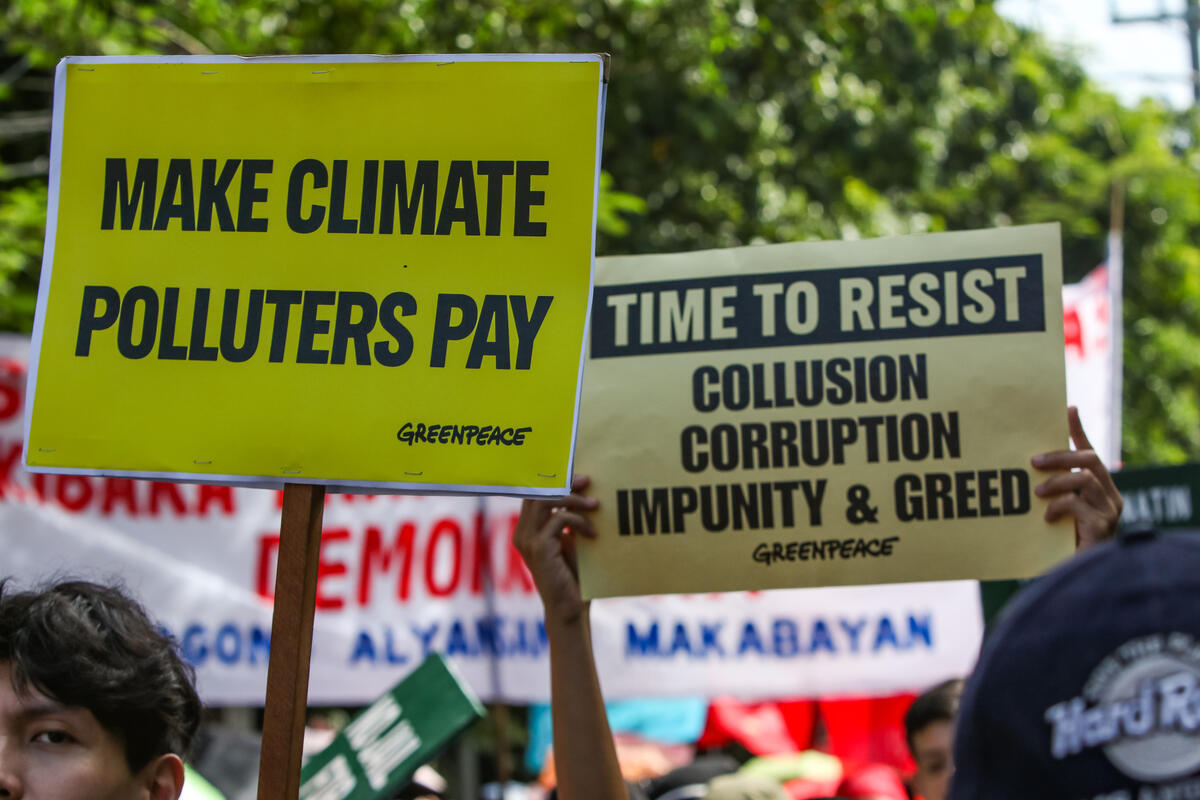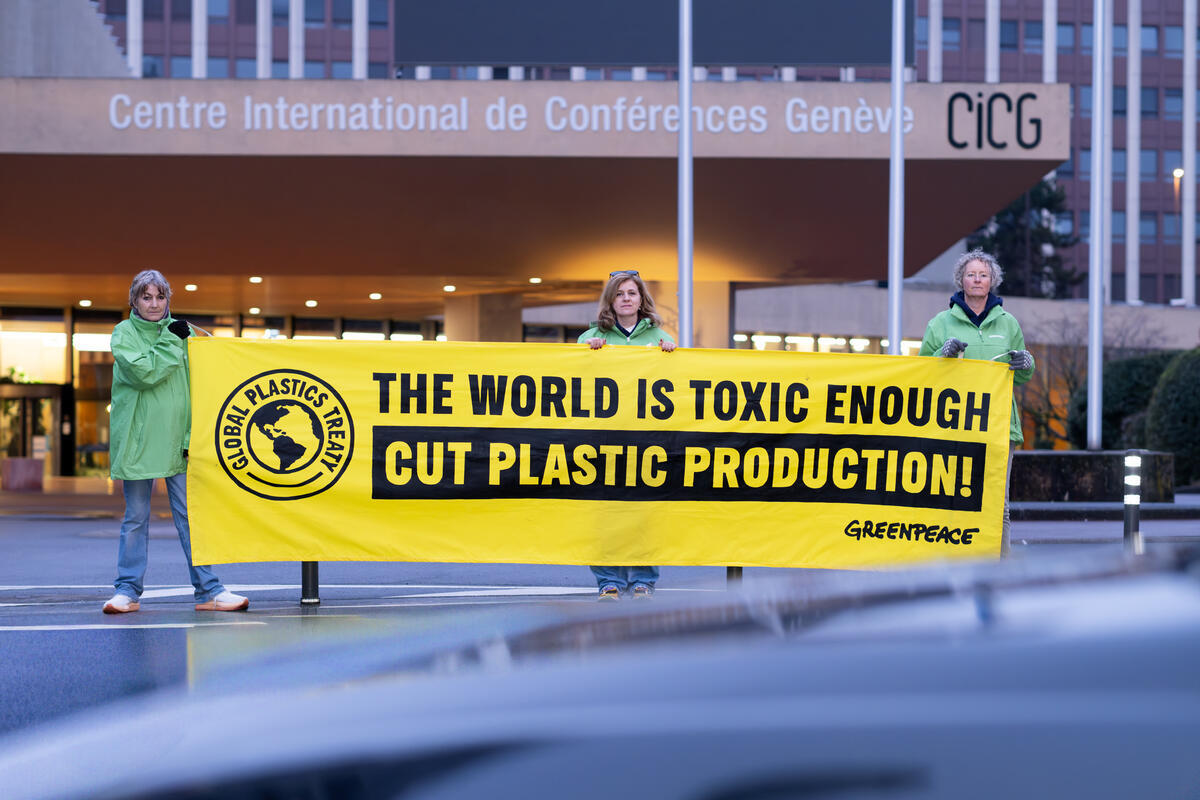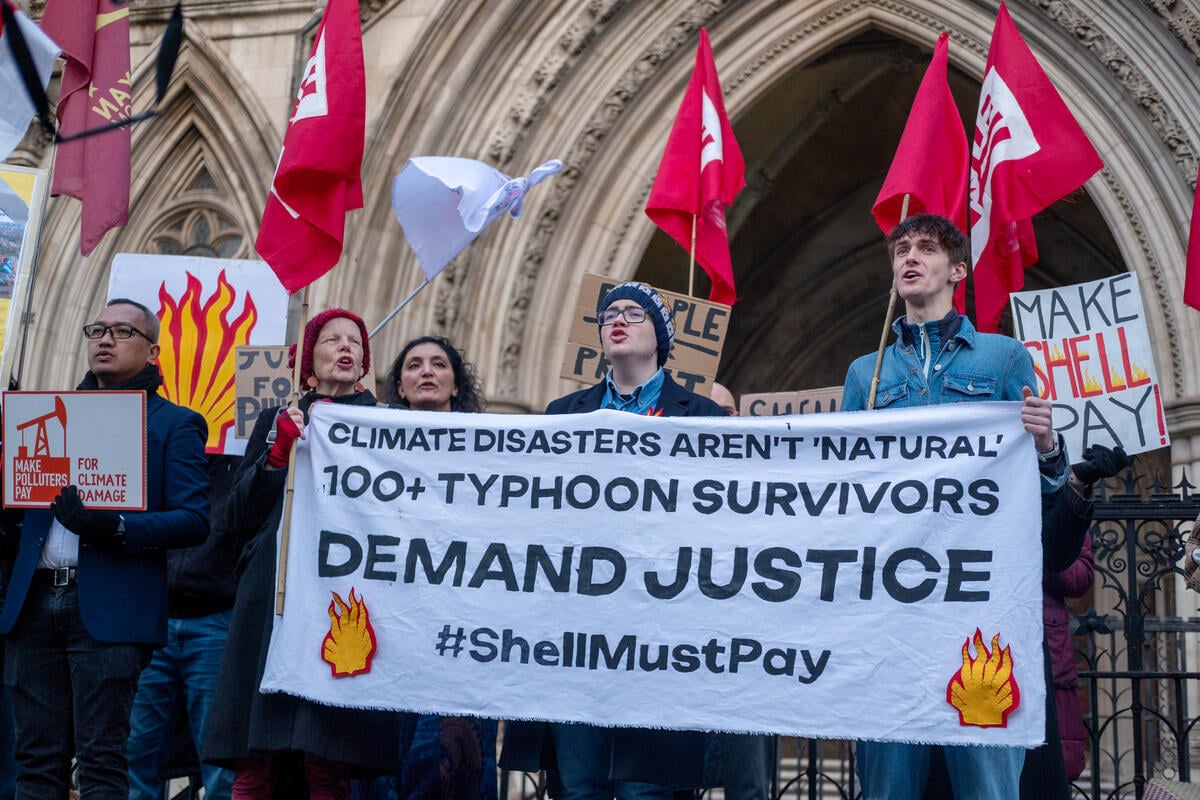Reports have come out that the Philippine Coast Guard confirmed that a subsidiary of San Miguel Shipping and Lighterage Corporation chartered the MT Terranova. Greenpeace climate campaigner Khevin Yu said,
“This is not the first time that SL Harbor Bulk Terminal Corporation, a subsidiary of San Miguel, was implicated in the sinking of a massive oil tanker, causing an oil spill.
“Lest we forget, in February last year, the oil tanker MT Princess Empress was carrying 800,000 liters of industrial fuel when it sank off the shore of Naujan, Oriental Mindoro. Despite the economic, ecological, and environmental costs—which could be felt to this day—they have escaped accountability.
“Unfortunately, communities and local governments shoulder the heaviest burden for oil spills, particularly when polluters are not held fully accountable for these disasters. In the end, people pay the price in the form of a damaged environment and lost livelihoods, while the local government uses taxpayer money and resources to respond to damages caused by the negligence of private companies.
“Greenpeace is calling on the government to undertake a comprehensive and transparent inquiry—inform the public of the scale of the leakage, run the oil through chemical fingerprinting, and release official papers about the owners and the company. If this spill could indeed be traced back to the SL Harbor Bulk Terminal Corporation, we need authorities to give us assurance that the company will not get away a second time.
“At present, we have yet to hear from concerned government agencies, the DENR, Philippine Coast Guard, and Bureau of Fisheries, regarding their full assessment of the extent of the oil spill. People, particularly the coastal communities and LGUs affected, should also be informed and consulted on the government’s plans for rehabilitation of affected coastal areas, and Manila Bay itself, which is an important fishing area.
“Rehabilitation entails resources. The government must call for reparations for communities from the companies involved. It must compel the companies to come out in the open, take responsibility for the spill, compensate the communities and local governments for effects on ecosystems, and livelihoods, and pay reparations for the knock-on effects of this disaster.
“Finally, to prevent future harm from similar incidents, the government must:
- Enforce stringent regulations and policies to ensure fossil fuel company operations don’t impact people’s rights to a healthy environment; this needs to include impacts not only from pollution from their activities, but also from the sudden and slow onset effects of climate change such as extreme weather events, rising sea temperatures, and sea level rise.
- Ensure valuable and vulnerable fisheries areas and biodiverse ecosystems are protected against industrial activities. Securing the country’s marine and terrestrial biodiversity needs to be a priority particularly as the climate crisis worsens.
- Urgently phase out fossil fuels to prevent further environmental and climate destruction and to protect communities.
“It’s impossible to fully clean up an oil spill, and ecosystems never completely recover. This catastrophe is a reminder that at all stages of its lifecycle, fossil fuels bring permanent harm to people and the planet.”
Latest hi-res photos and videos can be downloaded HERE.
For requests for interviews and other information, please contact:
Karl Orit, Greenpeace Philippines Communications Campaigner
[email protected] | +63 919 4571064
Maria Katrina Eusebio-Santillan, Greenpeace Philippines Digital Campaigner
[email protected] | +63 999 2296451



